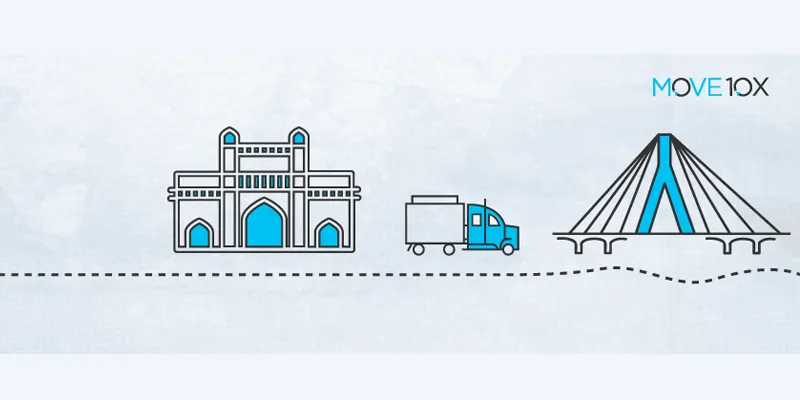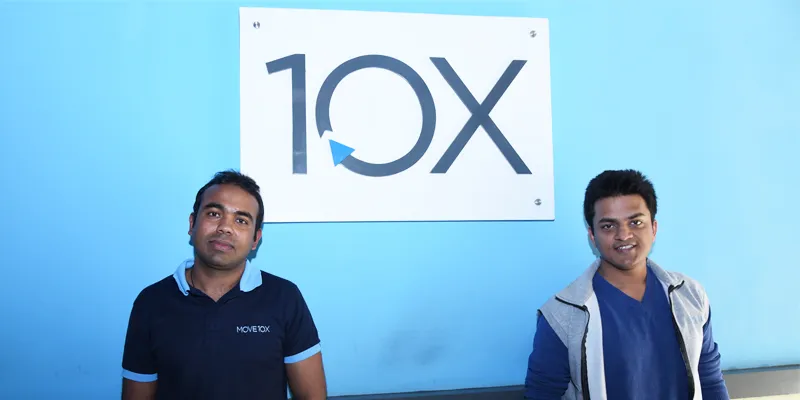Mumbai-based Move10x makes truck drivers smartphone-savvy
Aakash Bansal and Mohammed Israil Shaikh stand at the Octroi toll on the Mumbai-Pune Expressway, talking to truck drivers. The freshness of the vegetables being transported into Mumbai fills the morning air with a lovely fragrance. There are merchants bargaining with transporters on the price for intra-city transportation. That’s exactly the data set Aakash and Shaikh were looking for. The transport agent with the marketing chops gives the best deal per kilometre to the vegetable wholesaler or the small and medium enterprise, and wins almost every customer at the toll. However, some truck drivers who don't want to work with agents cannot collectively bargain on prices and are left behind. Sometimes these truckers stand for hours without any business. At best, these unorganised truckers make two short trips of 10 km each and earn close to Rs 600, which is understandably not enough. Every year, there are more driver entrepreneurs created in India than anywhere else in the world. According to the Society for Indian Automobile Manufacturing, there are around four lakh sub-one ton trucks that are sold in India each year, and these vehicles are bought by individuals who want to carve a livelihood out of these cargo vehicles.
Aakash and Israil figured that if they created a platform to connect these drivers with an ecosystem of individual customers and small and medium businesses, they will be onto something big. This was in early 2015, when they founded their company Move10x. Six months later, they have a viable business model, with more than 400 drivers on their platform transporting goods of around 100 small businesses in the Mumbai region. Manu Amre, a Tata Ace driver in Mumbai, says, “The unit economics on my truck is now positive. I have to do a minimum of 50 km or four trips to be cash-positive in order to run my household.”
While there are testimonials from truck drivers, these are still early days for startups like Move10x.
Israil says, “It’s an unregulated market and the quality of transport is not assured. Our platform increases the asset utilisation for the transporter.” He adds that if a driver can run his vehicle four times a day in a city, then he could earn additional income.

The beginning
The idea was born in California when Aakash was a student. He realised that in the USA, one could hire a truck for delivery and the quality of the service is ensured. But in India there is no information on truckers and no one knows shipment procedure.
Aakash says, “It is only a price game that everyone works on here in India.”
Aakash met Israil while working at a construction site. They were sourcing construction material when they began to vent about how these truckers do not have a standard operating procedure. “We realised that there was business in building data around this problem,” says Aakash. The next day the two of them visited toll roads and markets in the Mumbai region and began to interact with their target audience. Aakash began to build the portal and the app immediately. In a month’s time they had a business up and running with five drivers. The app was called Move10x for drivers and consumers. “Most drivers have low-end smartphones and they are happy if we show them that their business would increase,” says Aakash.
The business model and the competition
The business model is simple. For every transaction, a percentage in the high teens is deducted on the transaction value. The rest is paid to the driver. A similar model is followed by RoadRunnr. The only difference being RoadRunnr makes deliveries of small packages by aggregating bike owners who want to take delivery as a part-time business. RoadRunnr also provides logistics solutions for e-commerce companies. Others like Delhivery are into warehousing and inter-state logistics solutions for e-commerce businesses. PepperTap, a grocery delivery company, has its own logistics team. There are 10 other companies working with truckers. Some of the famous names are Porter, GoGoTruck, Logisure and Shipper. These companies focus either on a Business to Consumer (B2C) or a Business to Business (B2B) model. But the challenges in the sector would be the stickiness of these truckers and their ability to deliver quality services. The second challenge would be the marketing spend required to on-board businesses and to get the consumers to use the app. The founders of Move10x have spent less than Rs 50 lakh to scale up operations in Mumbai. They are currently speaking with investors to raise a seed round.
Related Story: To make logistics space efficient, IIT alumni launch logistics focused marketplace ThePorter
VC take
Several VCs have taken a bet on these on-demand logistics companies. According to data provided by YourStory Research, a total of $317 million was raised by startups creating logistics solutions. Ecom Express raised $137 million from Warburg Pincus last year.
“Any business should know the costs. It has to rapidly scale up in a market and then replicate this model across the country,” says Subinder Khurana, Member of the Board, Charter Member, TiE Delhi. He says that the team should be able to sustain operations with lower marketing spends and manage clever tie-ups with truck operators.
The logistics market is $200 billion, according to Indian Brand Equity Foundation. The opportunity for third-party logistics or on-demand logistics is worth $50 billion. However, only five per cent of the industry is organised despite the market being huge. According to consulting firm Ernst&Young, there are 4.30 million intra-state, district and rural roads. To connect these unorganised truckers with smartphones is a business pitch that can work. But the problem is the truckers and the consumers.
“Aggregating by itself may not be a value addition. There needs to a large data play and what these companies do with technology and data,” says Sarath Naru, Managing Partner, Venture East. He adds that many companies will shut down in quick succession.

YourStory’s take
Entrepreneurs should balance three things. The first thing is to build a great product, the second is to build a great team and the third is to capture the market with the lowest spend. The marketing spends needed to build a national business, in this case, can be high if they have to capture a larger mind share. But that does not mean the businesses or customers will use on-demand services simply because there is money spent on marketing. Only quality service and increasing asset utilisation of the truck driver is going to make these businesses a success. For Aakash and Israil, the startup journey has just gotten bigger, and will possibly move their business 10x in the years to come.







